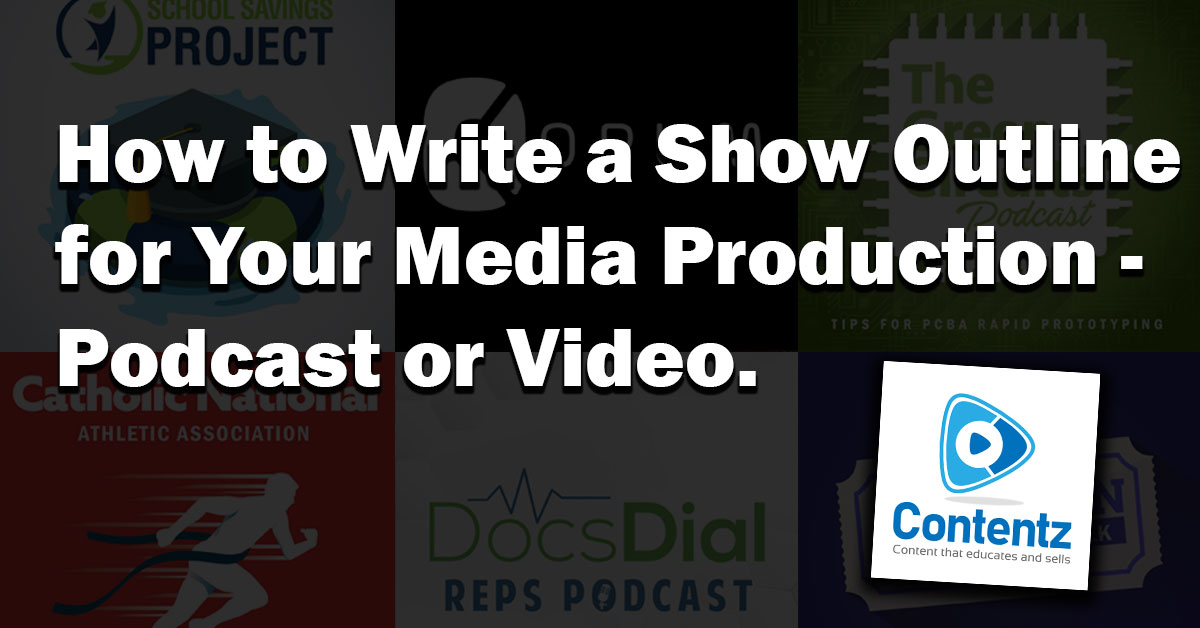Boomer Elmsdale

A show outline helps pull together everything you need to produce a specific episode. It will have an overview of the show, information about the guests and topics and specific questions that will be asked during the show.
Think of a show outline as a treatment for the episode specifically, whereas the treatment itself handles the entire series or show as a whole production.
Develop a show outline for each episode that you plan to produce. This document is useful for staff that sets up the studio. It gives them specifics about your needs in the studio and it gives them information about what to prepare for in terms of segments or adjustments to equipment that may be needed. The host will use the show outline to prepare any notes that will be used to enhance the experience for the guest. Guests like to prepare for any questions that will presented as well.
There are five elements to the show outline.
The show theme is a short paragraph that explains the point of this particular episode in concise terms. Think through the objective of the show and something that gets viewer attention. Don’t use passive language. Try to present the value of the episode in this phrasing. Ultimately this theme phrase can be limited to one sentence at least.
Add any details about the show and points you plan to make under this section.
Collect information for the host to review prior to going live with recording. Most hosts do not want to ad lib the interview entirely. Obviously this will depend on your format but collecting information about the guest’s professional life and work background helps educate the host on the direction of the conversation and it will give them ideas about relevant comments that can be made and questions that can be asked to make a successful, engaging interview.
Easy ways to pull guest information:
Requesting guest background information directly from the guest can be helpful as well. This gives the guest a chance to share what they want you to talk about on the show, versus surprising them with information they are not prepared to communicate about. Again, this will depend on the objective of your show as well as the style, but it is recommended that you consider the guest background prior to hosting for production.
Guest engagement is extremely important when developing video or audio show. Nothing loses an audience like a guest that is not engaged or comfortable on camera or on a recording.
As an exercise, write out three ways to engage the guest for each interview. Easy examples are professional background questions, personal interest questions, and how the guest got on the show. We have included some examples below. Feel free to use them and customize these questions for your guests.
Professional Background
Personal Interest Questions
How show episode came to be
The core interview should start with three segments. You can add more or have less, but for planning purposes, it is always good to have three segments when planning an interview.
As an exercise, list three major topics. List five questions for the guest within the three major topics. Take another look at the questions and reduce them to 3 per section. Then, go ahead and write out any details about the questions that a host could make as statements or a method of qualifying the question.
The beauty of content is that you can provide your audience with something to do and measure the conversion. For example, think of advertising. The ad plays and generally advertisers include a call to action, so the audience can go buy the product or learn more after they watch the ad.
Your production can generate the same results as advertising for you and your guests. Define next steps as they relate to your guest and your production or business for every episode. Perhaps you use the same conversion on every episode. That is fine of course, and it is your choice. But note that guests present different opportunities and you generally want to help your guests with their own objectives. Promote a next step for your guest and outline it in the show outline so your host and production staff can present it with taste and also so it is effective.